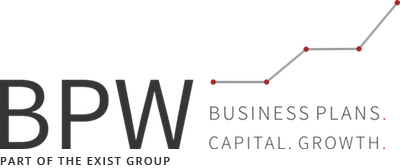Market Research & Feasibility 101
“People are always telling you to invest money like it’s the easiest thing to do in the world. Like for a layman, any kind of financial investment is a guarantee of income. However, in the real world, things aren’t that simple. In fact, if it were that easy, every other bloke would be rolling around in money. The main difference between a successful investor and a not-so-successful one is that the latter doesn’t bother to conduct a market research & feasibility study. A feasibility report or a market research feasibility report is one of the most basic things taught in business school, making it a crucial part of launching a new venture or chipping in on a start-up” idea.
Whether you are an aspiring entrepreneur or an experienced businessperson planning to expand your product line or list of services, it’s extremely important that you perform a thorough and in-depth analysis of your target market in order to determine whether the idea you have brewing in your mind is a feasible one. We understand that while launching a new venture or investing in a new path, people tend to get carried away and rush things out of excitement. However, you can only guarantee a fruitful tomorrow with careful planning and proper decision-making!
If you are thinking of launching your own business or are an experienced entrepreneur looking to embrace new business opportunities, then keep on reading – in this article, we will discuss the most crucial components of a market research & feasibility study, so that you may conduct yours in a much better way.
Set Up a Game Plan for Conducting Surveys
The first step in studying the feasibility of any business is to ask the target market whether they would actually want to spend money on its products and/or services. When it comes to determining the feasibility of a business idea, there are many paths which you can take for conducting surveys and collecting primary data. Due to a probable lack of time and budget, you can’t take all those paths. Therefore, you need to set up a game plan for how you are going to conduct your study. For this purpose, you may want to go back to your actual target market and identify the best channels that you can use to reach them.
For example, if your target market includes the younger generation, you can consider doing all of your surveys online (via social media). If the age-group of your target market is skewed upwards, you could consider conducting face-to-face surveys in public or getting data by going from one doorstep to the next. After collecting the data, perform a quantitative analysis.
Choose the technique which is best suited to study your particular hypotheses.
Perform a Competitive Analysis
It doesn’t matter if you are just starting your business or have been in the game for a long time – being aware of all your potential or existing competitors is highly necessary. In your case, your market research should definitely include the details of all the competitors in your industry. Commonly known as a competitive analysis, the purpose of this study is to identify the current market share, strengths, weaknesses, and the strategies the competitors are employing. Performing a competitive analysis will not only help you improve your strategies, but will also assist you in identifying whether doing business in that particular industry will be feasible.
Construct a Demand Model
After collecting primary data from your end customers and performing a competitive analysis, it is now time to construct a demand model. This is a rather technical component of the whole market research & feasibility study process and, therefore, requires adequate knowledge of economics and analysis. However, if you get it right, you get a much clearer and definite picture of the overall feasibility of your business idea. By using certain assumptions and forecasting techniques, the demand model will help you identify all the possible buying behaviors of your end customers and estimate your future sales.
Include Everything in Your Business Plan
Finally, include all of the findings of your market and feasibility study in your business plan to give potential investors and financial institutions a reason to chip in! The Importance of a Market & Feasibility Study The importance of conducting a market and feasibility study can be discussed from the following two perspectives:
For the Entrepreneurs
As discussed above, the primary purpose of conducting feasibility research is to determine whether pursuing a specific business path is actually worth it or not. Entrepreneurs need to be 100% sure that the money they are about to spend on giving their business ideas a shape will not go to waste and this study can help a lot in that regard.
For Investors/Stakeholders
Another crucial purpose of a market feasibility research is to give all the potential investors, financial institutions, and other stakeholders peace of mind and a reason to invest in your venture. Just like you, they also need to be 100% sure that the money they are about to invest will yield fruitful returns.
Ending Note – Consult a Professional!
Considering the magnitude of a market and feasibility study and all of the technicalities involved, as an ending note, we’d like to advise you to consult a professional business analyst to avoid making mistakes and to ensure that your report is absolutely accurate! However, the choice is ultimately yours – if you feel you are qualified enough to conduct your own research (and have adequate time and money to do so), then go for it. In any case, do NOT compromise on the quality of your feasibility report. We wish you good fortune!
